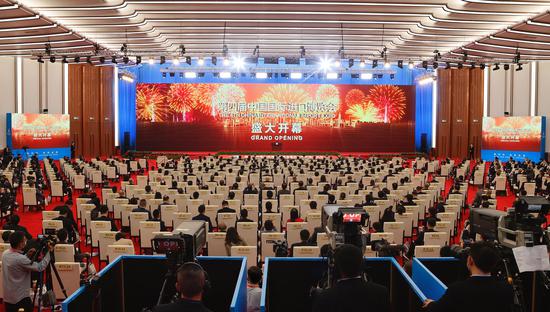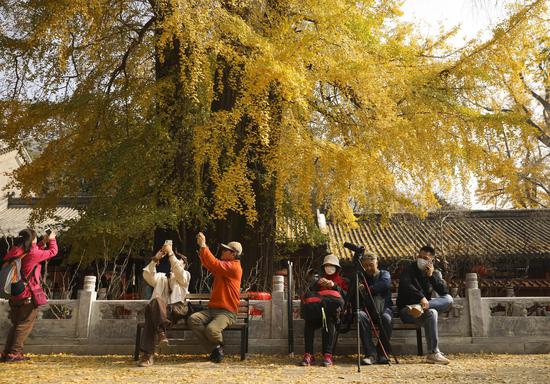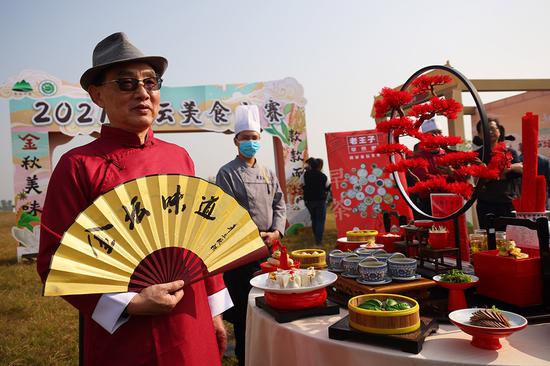The Biden administration is not seeking to change or contain China, but rather its policy is for the two major powers to coexist in the international system, the White House's top security adviser said, as leaders of the two countries plan to meet virtually this month or next.
"The goal of America's China policy is to create a circumstance in which two major powers are going to have to operate in an international system for the foreseeable future," Jake Sullivan, President Joe Biden's national security adviser, said Sunday.
"This will be a competition as we go forward. The Chinese government does have a different approach to many of these issues. And the goal here is not containment. It's not a new Cold War," he said in an interview with CNN, which aired Sunday.
According to Sullivan, one of the errors in previous U.S. policy toward China has been the notion of bringing about a "fundamental transformation" of the Chinese system.
"That is not the object of the Biden administration. The object of the Biden administration is to shape the international environment so that it is more favorable to the interests and values of the United States and its allies and partners, to like-minded democracies. It is not to bring about some fundamental transformation of China itself," he said.
Sullivan's remarks, made 10 months into the Biden administration, seemed to align with his views made months before he was chosen by Biden as one of his top foreign policy advisers.
He has, for example, advocated for a "clear-eyed coexistence" in U.S.-China relations, noting that despite the many divides between the two countries, each will need to be prepared to live with the other as a major power.
"The starting point for the right U.S. approach must be humility about the capacity of decisions made in Washington to determine the direction of long-term developments in Beijing," he wrote in "How America Can Both Challenge and Coexist With China", a late-2019 article co-authored with Kurt M. Campbell, now Biden's top Asia adviser.
When asked if he wanted a continuation of the status quo in Taiwan, Sullivan said, "We continue to adhere to the one-China policy, the Taiwan Relations Act, and we oppose any unilateral changes to the status quo."
China has said that the one-China policy and the three Sino-U.S. Joint Communiques are the political foundation of the China-U.S. relationship, and that it remains firmly opposed to and has never accepted the "Taiwan Relations Act".
Sullivan's remarks, if prevailing, could suggest the U.S. administration has heeded and responded to the three bottom lines Beijing set with Washington three months ago during U.S. Deputy Secretary of State Wendy Sherman's visit to Tianjin.
The first bottom line is that the U.S. must not challenge, slander or attempt to subvert the path and system of socialism with Chinese characteristics.
The second is that the U.S. must not seek to obstruct or break China's development process.
The third is that the U.S. must not infringe upon China's sovereignty or damage its territorial integrity.
The national security adviser's comments may reflect some of the thinking of the executive branch of the U.S. government, but the legislative leg has maintained a high degree of hostility toward China, meaning the relations between the two countries could be rocky ahead, which calls for proper management of conflicts and risks.
On Capitol Hill, where the only consensus the members seem to have is countering what they deem a "strategic competitor", there already have been more than 260 bills with negative content on China within the first half-year since the 117th Congress began its session on Jan. 3.
Those bills were made "out of no knowledge, misunderstanding and disinformation of China, particularly the Innovation and Competition Act of 2021 and the EAGLES Act", Chinese Ambassador to the U.S. Qin Gang said in a speech on Aug. 31.
"They underestimate the common interests between the two countries. If they become laws, they will hijack China-US relations and gravely damage America's own interests," Qin said.
Many in the Washington policy community have noted that the two nuclear-armed major powers are capable of profoundly harming the other, but neither is capable of doing so without hurting itself in the process.
"Not out of amity, but rather because of an absence of tenable alternatives, both countries will need to find a new and enduring framework for managing the relationship," the Brookings Institution said in a policy analysis titled "Rising to the challenge: Navigating competition, avoiding crisis, and advancing U.S. interests in relations with China", which was released over the weekend.
In the CNN interview, Sullivan said that the wrong metric for U.S. China policy "is the metric of 'in bilateral relations what agreements have we secured with China'." He said he preferred the metric of setting the terms of "effective competition" for the U.S..
But China has categorically opposed using competition to define China-U.S. relations, let alone competition that favors one side.
President Xi Jinping and U.S. President Joe Biden are expected to have a virtual meeting before the end of this year, both sides have announced. The two heads of state have had two phone conversations this year.


















































 京公网安备 11010202009201号
京公网安备 11010202009201号